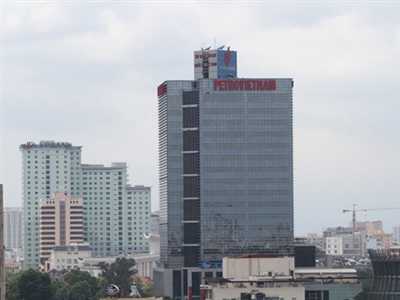|
Restructuring: Does it really happen?
For years, the
word "restructuring" has become so familiar to many people, but not
many people have seen the results of restructuring. Experts say that they
have just heard about restructuring, not seen it.
Slow restructuring, the risk of
capital loss
According to the latest report by the
Government, the restructuring plans for 68 state corporations and groups have
been approved. In particular, the Prime Minister approved 19 projects;
ministries approved 39 projects, and provincial governments ratified 10
projects. By the end of August 2013, the Government approved 100/101 plans to
restructure and renovate state-owned enterprises, submitted by ministries and
localities.
If one looks at the above numbers, he
may see that the restructuring has been implemented simultaneously at all
levels. However, the restructuring process is admitted to be very slow by the
government.
In another aspect, the slow
restructuring of state-owned enterprises (SOEs) is causing great losses to
businesses and the economy. This is quite clear in the 2012 audit report for
the fiscal year 2011, released by the State Audit of Vietnam Agency a few months
ago. The report stated that of VND25.75 trillion of financial investment by
state corporations and groups, many investment projects were unprofitable or
reduced in value and high risk of capital loss.
Experts say that the implementation of
the restructuring of state-owned corporations and groups is very rewarding.
However, the simultaneous implementation of restructuring cannot bring about
efficiency, when resources are being depleted.
At the same time, unreasonable
provisions on restructuring, such as state groups must complete the
withdrawal of capital from non-core business fields by 2015 and state groups
must not sell their stakes in non-core business at lower level than the
initial investment capital… have made state groups not to know whether to laugh
or cry, since they are struggling to find a buyer.
Disinvestment from non-core business
fields of the Vietnam Oil and Gas Group (PetroVietnam) and the Electricity of
Vietnam Group (EVN) is not easy.
PetroVietnam Chair – Mr. Phung Dinh
Thuc admitted that although the group’s restructuring scheme was approved by
the Prime Minister, the withdrawal of capital from non-core business areas is
now stuck due to economic crisis.
Thuc says that the policy of
PetroVietnam is to withdraw capital from the non-core business fields but
this must be implemented under a certain roadmap.
The biggest problem is finding a
partner to make divestments in the fields of finance, banking, real estate
... This means that the total investments in the non-core business areas of
PetroVietnam of VND5.8 trillion (of its total capital of VND304 trillion)
continues to be "idle."
At EVN, under the restructuring scheme
of SOEs, from 2015, EVN must withdraw all investment capital in non-core
fields. The divestment is also a big problem for EVN since this group was
requested by the Ministry of Industry and Trade to not sell its stakes in
non-core business fields at lower market value.
This regulation raises difficulty for
EVN in seeking an eligible partner to transfer its capital at ABBank, EVN
Finance or EVN Land Central.
Must be transparent
Financial expert Bui Kien Thanh says
that if
Dr. Le Dang Doanh says that to
restructure SOEs, the state should have public and transparent rules for the
operation of SOEs.
"Whenever SOEs keep hiding
information and the cross-ownership of banks still exists, it is impossible
to restructure SOEs. To restructure in a market economy, credit plays an
extremely important role. When banks are sinking into bad debt, businesses do
not have access to capital, it is hard to maintain the economy, let alone
restructuring the economy," Doanh says.
Source: Tien Phong
|
Chủ Nhật, 27 tháng 10, 2013
Đăng ký:
Đăng Nhận xét (Atom)

Không có nhận xét nào:
Đăng nhận xét